
Uncertainty, anguish about not knowing what will happen, the fact that we do not know how much longer we will be in this situation... We are - as Yuval Noah Harari says in his book “21 Lessons for the Twenty-first Century” - now and always, in a changing, volatile context, we have no certainty about what will happen tomorrow, which is complex and often ambiguous. People tend to seek serenity, comfort, stability, calm and this uncertainty creates some anxiety. So in an environment like the one just described, how should the education system respond?
Los docentes están utilizando herramientas virtuales que les permitan realizar sus clases del mismo modo como las hacían anteriormente. Muchos docentes están desbordadas/os por virtualizar sus clases presenciales y sobretodo quieren poder verificar «¡que hagan cosas!, ¡que trabajen!, ¡que avancen contenido!. La pregunta es: ¿Por qué intentamos actuar del mismo modo?, es decir, ¿por qué tratamos de virtualizar lo que hacíamos presencial si el contexto, las emociones, el presente y el futuro son absolutamente distintos?
The fact of not knowing what online education is, makes people to prioritize aspects that we know are not the priority of learning. We know that what is necessary in moments of uncertainty, of some anguish and where each and everyone must adapt to conditions unknown until now, is to prioritize and give value to emotional well-being and human, social and cognitive development of our students.
Yeah, but... how can we do that?
First we need to define our priorities as educators: what weighs more: the person or the curriculum vitae? If we value the person more than the curriculum we must carry out an emotional support to the students, knowing what they live, how they live it and
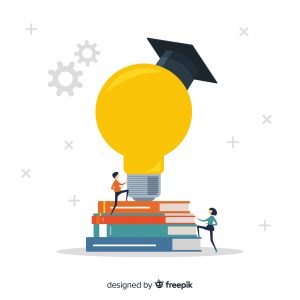
how we can help them to express and manage their emotions.
On Secondly, we know that the brain learns when it is able to understand what happens with existing variables, reflecting about the result of the combination of several elements, so we can never forget that the learning process will occur whenever it is contextualized, meaningful for the students, experiential, bright, and therefore true..
Whether we train face to face or online, we must offer personalized attention to our students, support them in their emotional and academic growth, offer our help, and be close to them. We love reading Yuval Noah Harari, and especially one of his quotes that fits like a glove on the hand for these moments:
"The most important investment that people can make is not to learn a particular skill—’I’ll learn how to code computers,’ or ‘I will learn Chinese,’ or something like that. No, the most important investment is really in building this more flexible mind or personality.”
We must understand the current situation as the possibility of creating new horizons, new ways of understanding education, an opportunity to grow. Resilience, together with neural plasticity, facilitate this task.
Neuronal plasticity is the ability of our brains to form new connections between neurons and adapt to new situations.
As Anna Forés and Jordi Grané explain in their book “Resilience. Growing from adversity”, “resilience is walking through life with a two-sided coin” knowing that “human beings have the ability to be screenwriters and protagonists of their own stories”.
Here is a quick exercise:
EXERCICEPut on the brake, stop. For a moment, close your eyes and think about the following questions:
You have some answers, right? Well, and in the current situation, what has changed? Is there anything that you feel motivated since a while to become a teacher that cannot be fulfilled today? |
Normally, our worst enemy is ourselves when we tell ourselves that there is something we cannot achieve. However, by putting it into practice, without judgment, by experimenting, by playing, we realize that we can create much more than was written, and we can set in motion our creativity to make bridges that were not even initially planned.
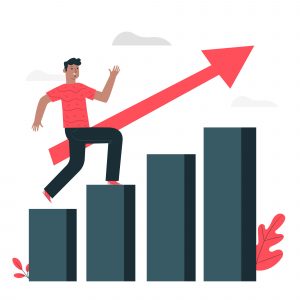
What is experiential learning?
Experiential learning is an active learning methodology, in which the learner is the center and becomes aware of their own assimilation process. It consists of carrying out actions and reflecting on one’s own experience, but at the same time, reflecting on the topics that are addressed by being an active agent of learning in that context and considering the process of experimentation.
Remember that for an existing learning there must be some kind of emotion (Francisco Mora, 2017), and that emotion must start from a motivating element. Without emotion there is no learning, so we will get them to learn when we humanize and contextualize learning, starting from their interests and taking into account their previous experiences.
Moreover, experimenting, living what we do with passion, facilitates us to achieve our goals, opens our minds, helps us to create, to try, to fail and to succeed, and through trial and error, interaction with peers and reflection, we can achieve the unreachable.
The competencies that our students must develop in the 21st century are widely done through experiential learning correctly implemented. Some of these are conflict resolution, analytical thinking, digital competence, reflective judgment, learn by learning, communication and relationship skills, knowledge management, etc.
The role of teachers in experiential learning
So, let’s design learning scenarios that involve students in learning experiences, in authentic experiences. Imagine how many options we have to raise!
Creating learning experiences is not easy. To do so, we must bear in mind that experiential learning is nourished by reflection on practice, and therefore, the task of the teacher is to design scenarios in which students find a situation to solve, for example: a challenge.

Once the situation arises, we must give them the necessary tools to investigate, experiment, contrast, analyze information and draw some conclusions, which through interaction with their peers, can transform into solutions to the situation. Self-employment on the one hand, andteamwork (with the communication skills) are developed
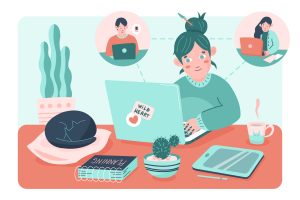
widely. Teacher feedback is important to see how they focus the solution and at this point, their task is to give the opportunity to examine the result from different points of view. The solution, through this active and experiential learning, is obtained by the students, but the teacher is a fundamental piece for achieving their success.
Techniques or methodologies such as: Problem Based Learning, Case Based Learning, Simulation, Workshops, Laboratories, Project Based Learning, Challenge Based Learning, Inquiry, are the result of experiential learning, and are very appropriated to be worked both online and face-to-face.
The use of technology
La tecnología nos ofrece la posibilidad de interactuar con las demás personas de la misma forma como lo hacíamos antes, con el único inconveniente que supone la distancia física, la falta de contacto. Las conversaciones que tenías con tu alumnado, las puedes seguir manteniendo, puedes seguir mostrándote tan cercano/a como lo eras hasta ahora. La pregunta es: ¿en qué te focalizas, en facilitar contenidos o en ofrecer experiencias de aprendizaje?
We have the opportunity of our lives, and the official permission to empower learning through learning experiences!
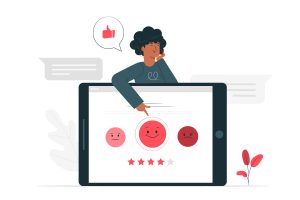
For the first time, we would almost say in history, the curriculum can become secondary and the opportunity to focus on what is really important is more powerful and possible!
We have the necessary tools to carry out experimental learning, as we have the possibility to hold video conferences, discussion forums, chats, shared documents, we have access to the information provided on the Internet, we have provided platforms, etc. All these resources allow us to reflect individually and collaboratively on the issues we propose to our students.
How can experiential learning help us move towards meaningful learning?
In a well-known environment, in which students know that they can intervene to solve them (remember the concept of Resilience), tasks will be much more interesting and motivating than simply putting forward decontextualized activities from their interests/realities even if they are fully aligned to the curriculum. When the student intervenes, he activates, and when he activates, his brain (executive functions) starts, among other aspects, the prior knowledge to facilitate new connections with the information he acquires (Bruner).
Meaningful learning (Ausubel) goes from this, from making what you learn valuable, relevant and contextualized.
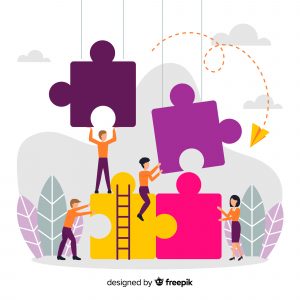
Let us propose learnings that encourage them to seek, analyze, reflect, discuss, share, experience, co-create and build an applied and meaningful knowledgeby putting into practice the skills that are necessary for the 21st century in particular: communication, collaboration,creativity, critical thinking, problem solving, resilience...
From BeChallenge methodology we work every day to supply teachers from around the world who can propose more experiential learning, focused on students and starting from real challenges which generate an impact both educational and social. If you are a teacher, manager or a person related to education, we invite you to contact us, and then we can help you.
"Give the pupils something to do, not something to learn; and the doing is of such a nature as to demand thinking; learning naturally results”
John Dewey
The current situation allows us to consider what our educational principles are in order to validate what really matters in education.
EXERCICEThink:
Finally, answer again:
|
LITERATURE REFERENCES
http://www.oecd.org/education/2030/Preparing-humanity-for-change-and-artificial-intelligence.pdf
Forés, A.; Grané, J. (2008) «La resiliencia. Crecer desde la adversidad». Barcelona: Plataforma Editorial
Mora, F. (2017) “Neuroeducación. Solo se puede aprender aquello que se ama”. Madrid: Alianza Editorial
https://cead.pressbooks.com/chapter/3-6-aprendizaje-experiencial-aprender-haciendo-2/
Moon, J. A. (2004) “A handbook of reflective and experiential learning”. London & NY: Routledge Falmer
*Images taken from Freepik
Xavier Pascual
Fundador y CEO de BeChallenge
Marta Ollé
Diseñadora de experiencias virtuales/reales de aprendizaje
Si estás dando tus primeros pasos en el diseño de escenarios de aprendizaje a través de proyectos y/o retos en aulas virtuales, no dudes en contactar con nosotros: hello@bechallenge.io
IIf you have found this article interesting, you can follow us on TWITTER and suscribe to our NEWSLETTER
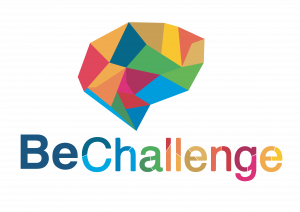

¿Quieres transformar el aprendizaje en tu institución?
Solicita una demo gratuita y descubre cómo BeChallenge te acompaña en el proceso.
Solicita una demo gratuita
Un saludo.
Un post muy bueno que despeja dudas en torno a un tema cada vez más candente: el aprendizaje experiencial en aulas virtuales cada vez más implantadas en la sociedad. Muchas gracias.
Interesante lectura, en vista que rescata el valor de la persona por lo que es y no por lo que posee, debemos fomentar una educación humanista. Así mismo nos permite reflexionar sobre nuestras prácticas docentes, las herramientas, estrategias y modelos pedagógicos que orientan nuestra labor docente en aula y en esta virtualidad.
Totalmente de acuerdo todas las ideas plasmadas en el artículo